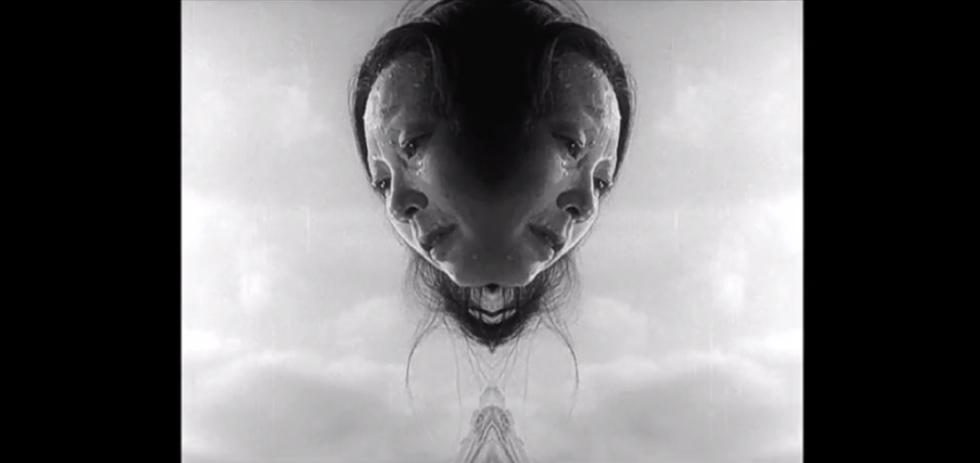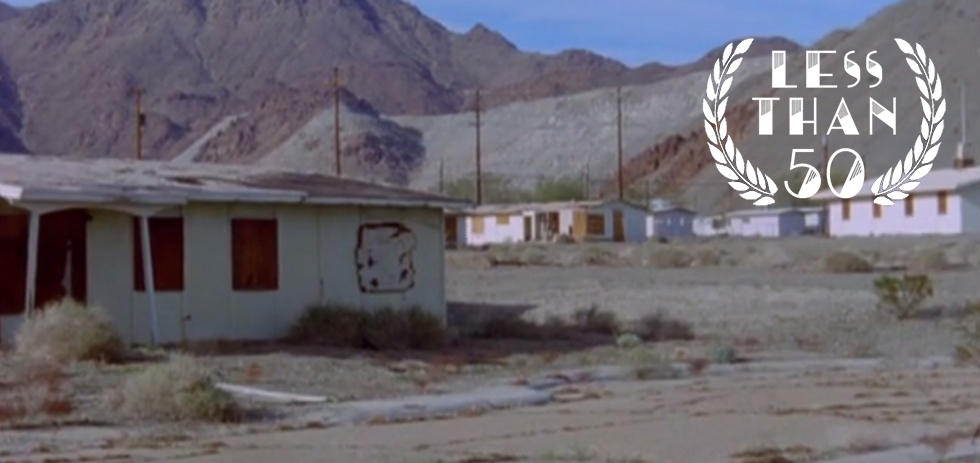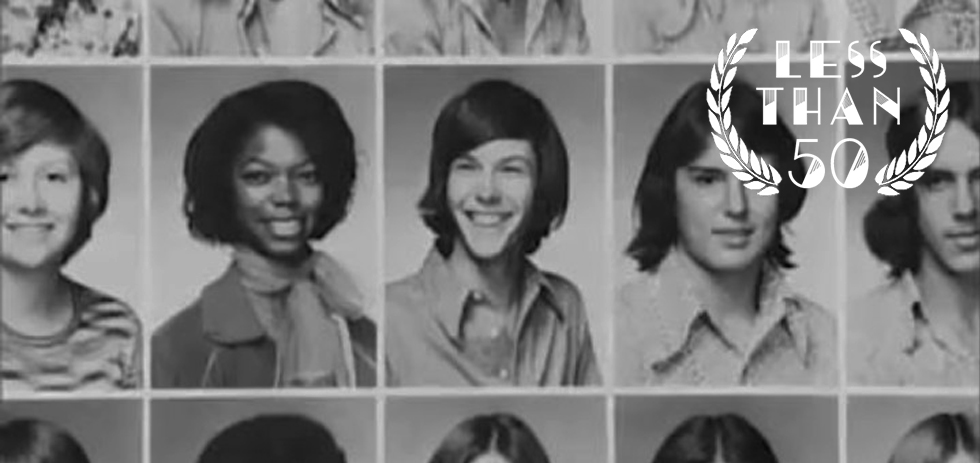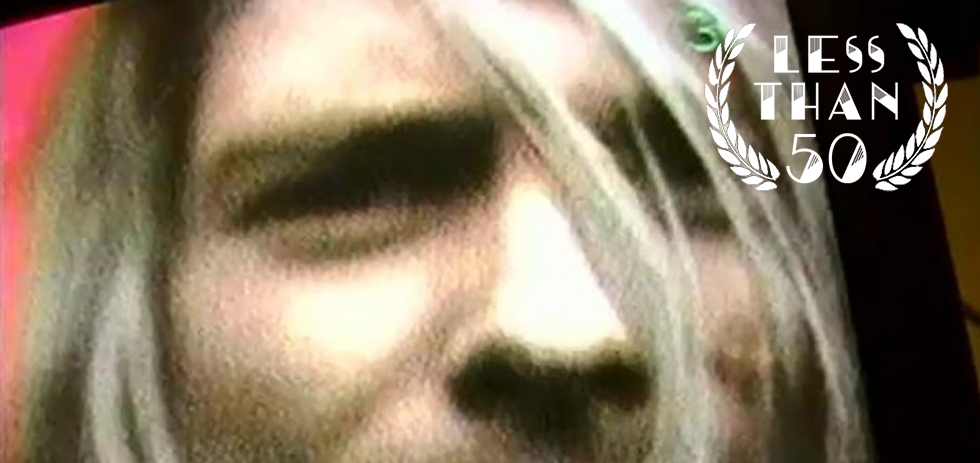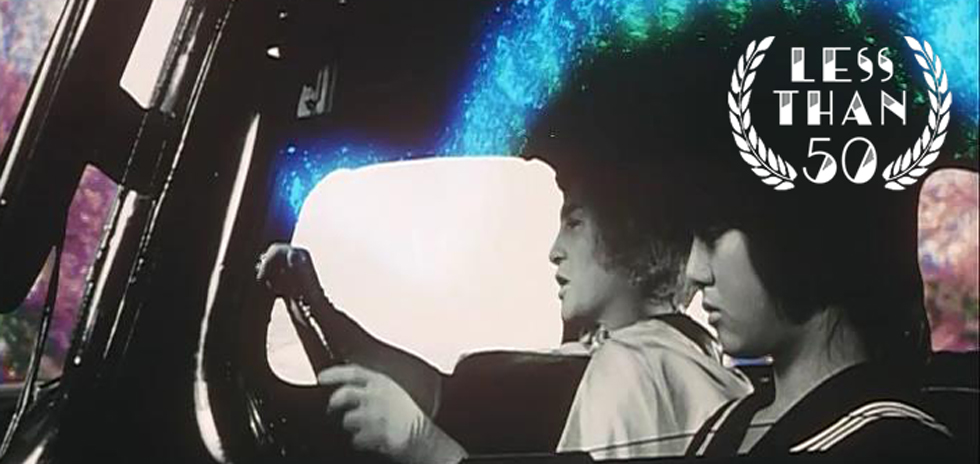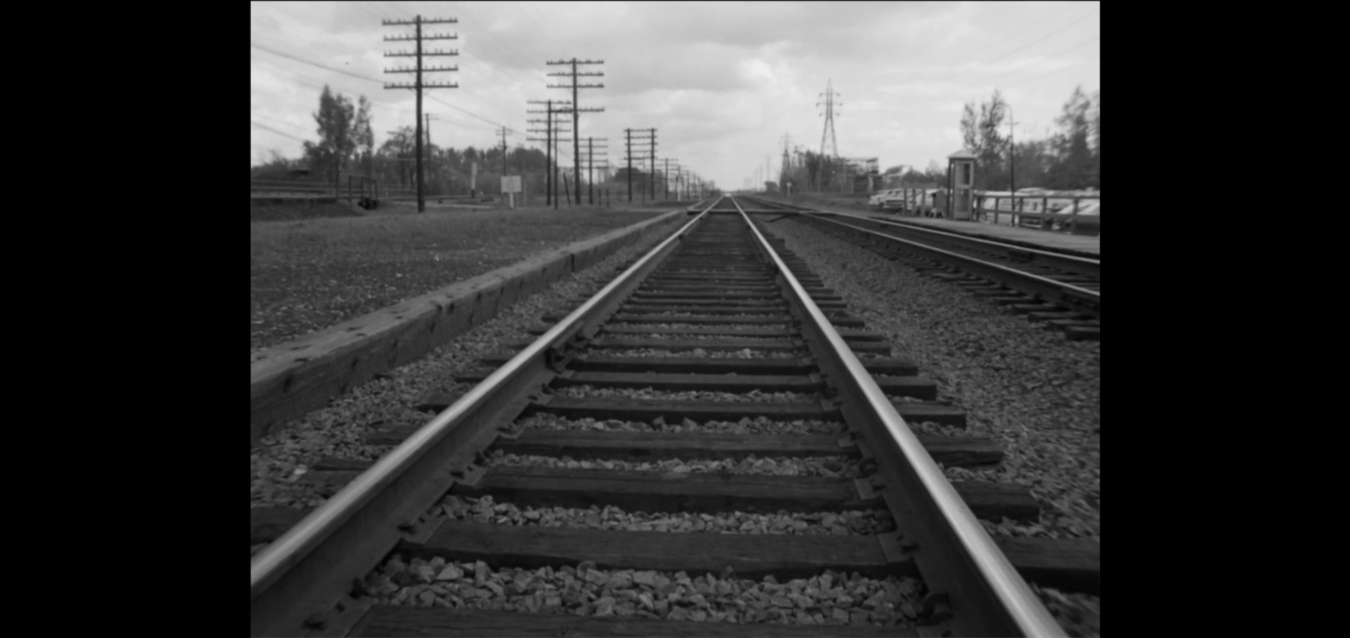Nicolas Provost’s striking, beautiful and almost terrifying short ‘Papillon d’amour’ sees him edit a scene from Kurosawa’s Rashômon, playing with symmetry and shapes to craft a mini-narrative within the original scene.
California Company Town (dir. Lee Anne Schmitt, 2008)
Lee Anne Schmitt’s almost meditative experimental documentary looks at a string of boom-and-bust towns in California over the decades, tracking the relationship of industry and nature.
Con Man (dir. Jesse Moss, 2003)
Jesse Moss’ debut documentary feature centers on a con artist whose ambitions seem both relatable and, more importantly, strangely honourable.
The Target Shoots First (dir. Christopher Wilcha, 2000)
Christopher Wilcha’s intimate look at the inner workings of Columbia Record Club is a wryly funny and engaging act of creative rebellion within a corporate structure.
School in the Crosshairs (dir. Nobuhiko Obayashi, 1981)
This week on Less Than (Five) Zero we look at a film from the maker of cult hit HAUSU, Nobuhiko Obayashi’s playful genre-bending superhero film SCHOOL IN THE CROSSHAIRS.
Kinetta (dir. Yorgos Lanthimos, 2005)
This week on Less Than (Five) Zero we look at the debut feature from DOGTOOTH helmer Yorgos Lanthimos, the character triptych KINETTA.
We Like Shorts, Shorts: 23 Skidoo
A striking and unsettling short that takes place entirely in an empty city, Julian Biggs’ 23 SKIDOO is our latest focus for our WE LIKE SHORTS, SHORTS column.
Gunnin’ for That #1 Spot (dir. Adam Yauch, 2008)
This week’s Less Than (Five) Zero film is Adam Yauch’s GUNNIN’ FOR THAT #1 SPOT, an engaging look at the way in which the media shapes high school basketballers.
Silence Has No Wings (dir. Kazuo Kuroki, 1966)
For our very first feature on underseen films (less than 50 views on Letterboxd), we look at Kazuo Kuroki’s erratic and beautiful SILENCE HAS NO WINGS.
Grayscaled – Nebraska in Colour and Black & White Cinema Experiments
It was recently announced that EPIX, a US-cable channel, had acquired the rights to broadcast the ‘colour’ version of Alexander Payne’s Nebraska, against the director’s express wishes. In this piece we look at films that have made the leap either from or to black and white.
